One year of Warzone: How battle royale changed Call of Duty for good
Lockdowns, cheaters, and the twin Diamattis: Looking back over the last 12 months of Call of Duty: Warzone
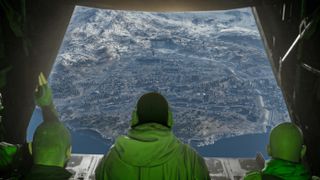
Call of Duty: Warzone has changed the landscape of Call of Duty forever. What was once a franchise defined by distinct annual instalments is now a fluid ecosystem; multiple interconnected experiences all anchored around a single, unifying battle royale, free for everyone and continually evolving.
Just a little over a year ago, this was unthinkable for Call of Duty. A free-to-play spin-off to the popular first-person shooter series certainly made sense for handheld devices (indeed, Call of Duty: Mobile remains hugely successful), but the idea of Activision willingly lowering the paywall to its biggest franchise in the AAA space? Yeah, right.
The pre-reveal scepticism didn't end there, either. Call of Duty had already tried to ride the coattails of the battle royale craze with 2018's Blackout mode in Black Ops 4. Wouldn't any subsequent follow-up scream of too little, too late? What could the shooter bring to the overcrowded genre that wasn't already on offer elsewhere? More importantly, people barely spend any time at home anymore; how on earth did Activision expect players to add another battle royale into their rotation after a long day at the office?
The assumptions embedded within those questions were more off the mark than my attempts to master the AX-50 rifle when Warzone launched on March 10, 2020, just two weeks before the UK and multiple parts of the US entered full, government-mandated lockdown.
Getting in the zone
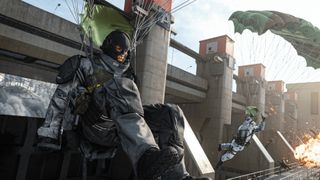
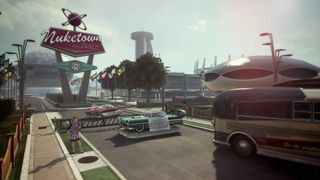
The real-life Nuketown: Where Call of Duty got its most iconic map
Where other battle royales self-identify through a novel USP (crafting, hero powers, low gravity), Warzone's is that it offers scale and detail at exquisitely optimised quality. Despite taking place across a giant map littered with fully navigable buildings, Infinity Ward's online shooter offers few compromises to the finely tuned gunplay we expect from Call of Duty, nor that of its graphical fidelity.
It cannot be overemphasised how important this is to Warzone's success. While you can point to the unique ideas centred around its Gulag, Buy Station, and Loadout Drop systems as factors in the game's appeal, none of those things would maintain their magnetism if Warzone didn't feel so damn good to play at a foundational level.
You can see the manifestation of this truth most clearly on the occasions when Call of Duty: Warzone isn't operating at the levels expected of it, and the community reacts en masse. The last twelve months of constant live service support hasn't been without its hiccups, as Activision, Infinity Ward, and now Raven Software have worked to crack down on Warzone's influx of cheaters, carefully rebalance the meta whenever a new weapon threatens to undo it, and offer quick fixes for recurring game-breaking bugs such as the insta-stim or invisibility exploits.
Sign up to the GamesRadar+ Newsletter
Weekly digests, tales from the communities you love, and more
In a game as cohesive and competitive as Warzone, these are the issues that have really mattered for its players, who can more readily look past the fact that we've only had one core BR map so far (ignoring the smaller, but certainly popular Rebirth Island), so long as the game continues to run with the well-oiled precision of a high-calibre Swiss watch.
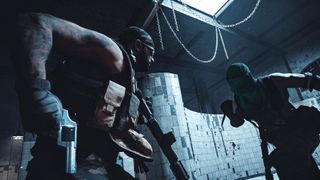
But about that new content. With Raven Software now having taken over the live service supporting role from Warzone creator Infinity Ward, and the recent arrival of Zombies to Verdansk, it appears as though the battle royale is finally gearing up for the comprehensive map overhaul long rumoured to be in the works.
This terraforming update will supposedly bring the game more in line with the setting and story of Call of Duty: Black Ops Cold War, but how it does so without losing some of the most appealing aspects of Warzone's identity remains a worrying question.
That said, a new map could be a healthy opportunity for Raven to level out Warzone's playing field, giving new and returning players a fairer chance against those who know every nook and cranny of Verdansk, and often use that knowledge to their advantage.
Similarly, Black Ops Cold War introduced boats and aquatic warfare back into Call of Duty's multiplayer skirmishes, and their expected arrival to Warzone will certainly liven up the meta, provided they can be implemented without the hiccups of last season's still-MIA attack helicopters. Make no mistake; Verdansk is an exceptionally designed, much loved map, and we'll be sad to see it go. But change is vital for any live service to thrive, and the time has come for Warzone to discover its identity beyond the boundaries of this small patch of Kastovia.
The new face of a franchise
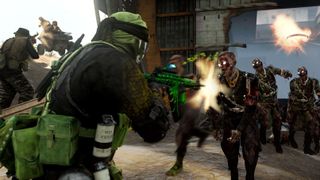
"Warzone has dragged Call of Duty kicking and screaming into uncharted territory."
Regardless of what the future holds for Warzone, there's no doubting its seismic impact on the Call of Duty IP. The battle royale now resembles a nexus through which all other Call of Duty titles, updates, and promotions run; a sort of metropolitan franchise train station that offers regular direct routes to Modern Warfare, Black Ops Cold War, Call of Duty: Mobile, and no doubt whatever next instalment is planned for later this year.
From a narrative perspective, Warzone has also acted as the focal point for the beginnings of a Call of Duty shared universe, one which manifested itself unexpectedly last year via a surprise cameo in Black Ops Cold War. This synthesis of a grand Call of Duty tapestry presents a new challenge for Activision in maintaining clarity for the consumer, but it also holds new opportunities, ripe with potential for revitalising Call of Duty over the next generation.
It's no longer infeasible, for instance, to consider a future beyond the annual instalment cycle we've come to expect from Call of Duty, as Warzone has proven that a different approach can be just as profitable and entertaining. This may explain why Actisivion is said to now be working on a standalone Call of Duty: Zombies experience, and who's to say more spin-offs aren't on the way?
Warzone has dragged Call of Duty kicking and screaming into uncharted territory, then, one where the rules of old no longer apply. We can't know exactly what that means for the series' future, but that's entirely the point. For once, this famously predictable franchise is operating in the delectable unknown, and we only have Warzone to thank for it.
For more, check out the best Call of Duty games to play right now, or watch our full review of Watch Dogs Legion in the video below.
I'm GamesRadar's Features Writer, which makes me responsible for gracing the internet with as many of my words as possible, including reviews, previews, interviews, and more. Lucky internet!
Most Popular

